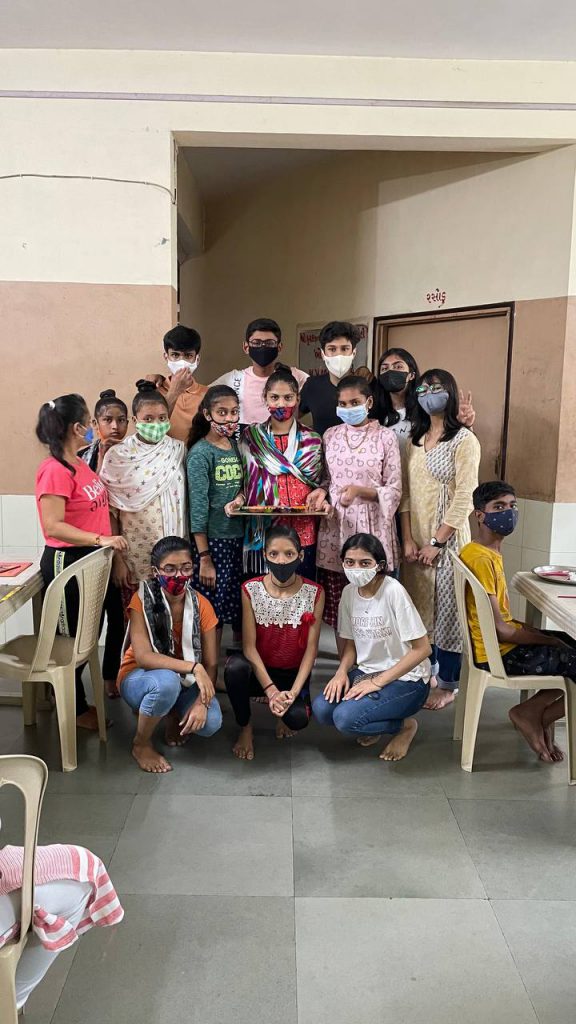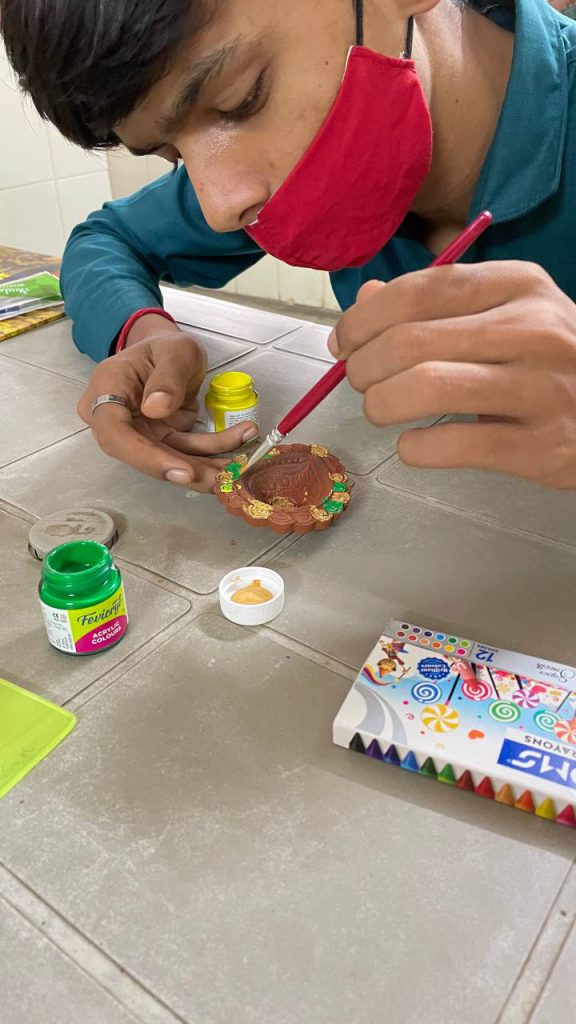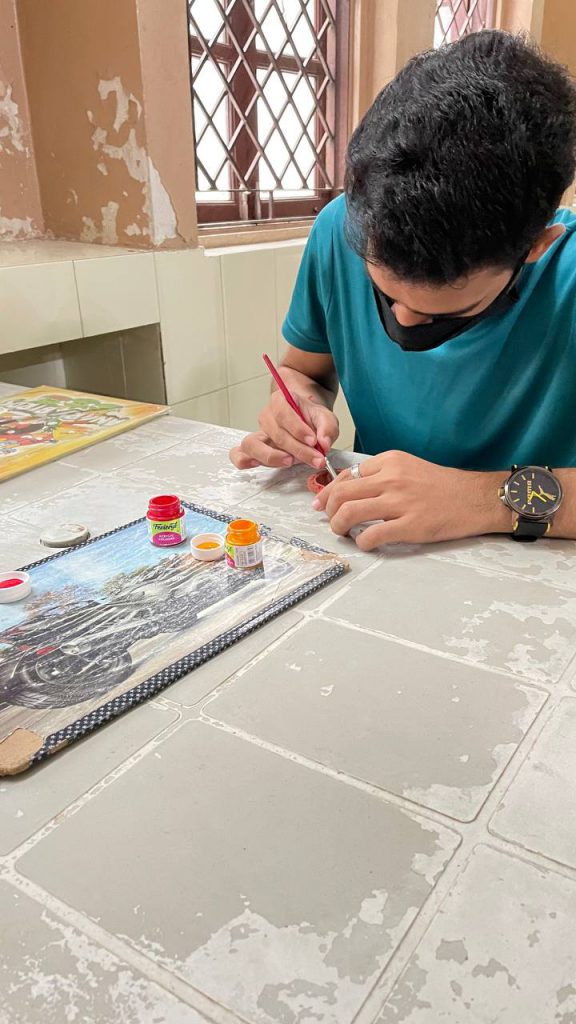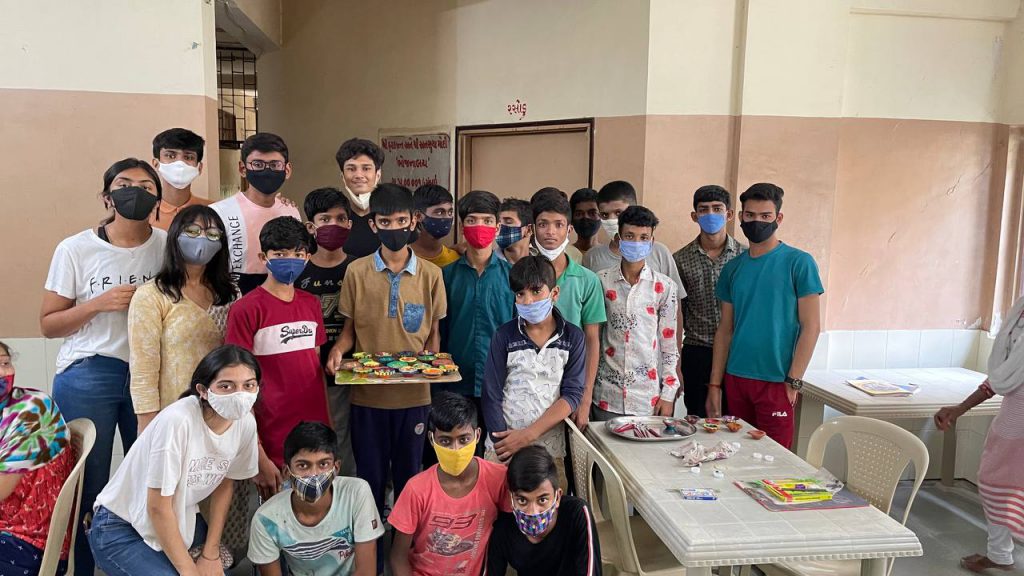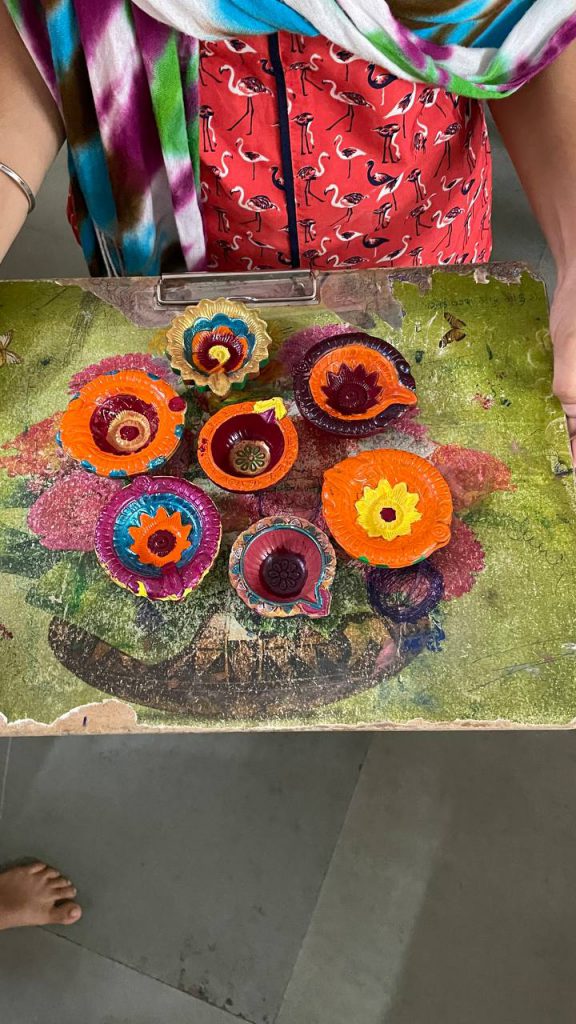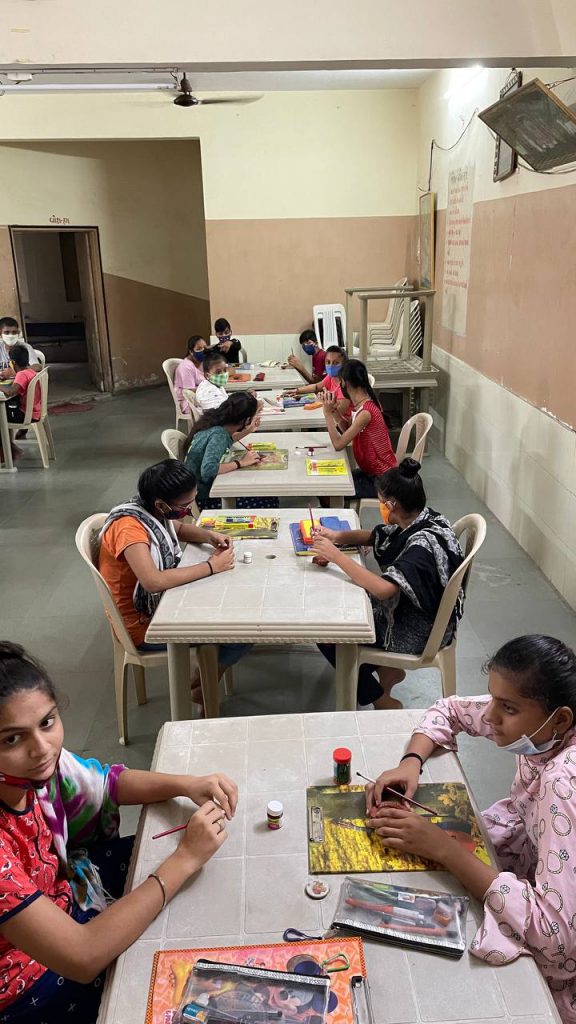Having the opportunity to study in a respected school, to be privileged enough to live a life of comfort constantly reminds me to be grateful. Growing up, I attended dance classes that were held in the rooms of a school for the hearing and speech impaired children. I was enrolled in these classes for 5 years and I often noticed the children there. I noticed the way they communicated with each other, the way they played and had fun without having tangible sources of entertainment and the kind of facilities that were offered to them. The school had resources that could only suffice for their basic education and accommodation and no extracurricular activities were conducted. Having the opportunity to carry out a CAS project, I knew what I wanted to do. Along with a friend and with the help of a group of peers, I decided to organize a small scale event for the children. We had the children involved in a number of activities like diya painting and decoration, card making, and other fun games too. The whole idea was to give them exposure and experiences that they otherwise wouldn’t have been given within the facility.
LO-2. Demonstrate that challenges have been undertaken, developing new skills in the process
Any kind of event involving a large number of people requires people management skills. The fact that we were dealing with an audience that was hearing and speech impaired was a challenge in itself. Even though we had a supervisor who overlooked all the activities and assisted with all forms of communication, it was still a challenge to ensure that our instructions and directions for each activity was understood by all the children. Some of us made initiatives to learn certain words like ‘thank you’ ‘welcome’, ‘please’ and ‘ hello’ in their language of ‘gestures’. It was an insightful experience that made us realise the importance of our basic five senses. This even gave us all the opportunity to put ourselves in the shoes of those who can’t hear or speak and understand the kind of difficulties that they must have gone through. We developed new skills of expressing ourselves only through gestures, without the use of words, which was definitely more difficult than it sounds.
LO-3. Demonstrate how to initiate and plan a CAS experience.
Turning an idea or a visualisation into reality required a plan. We had to gather a team of people who were ready to be a part of such an event. Moreover, we had be prepared with appropriate games and activities that did not require hearing or speaking. It was difficult to come up with a number of such games. In addition to planning activities and ensuring they did not cross the time limit allotted to us, we also had to be prepared with the needful resources.The entire process required careful planning and execution.
LO-4. Show commitment and perseverance in CAS experiences.
Like already mentioned, the event required careful planning in order for it to be a successful one. About almost a month long of brainstorming, planning and preparing were we able to organise an event like that. The process required commitment. Also, while carrying out the activities and the games, it was important for us to have patience since we were dealing with differently abled people. Carrying out such activities demanded perseverance from each member of the team.
LO-5. Demonstrate the skills and recognize the benefits of working collaboratively
Planning the event and actually making it happen would have not been possible without a team. Every member played a crucial role throughout the process. From contributing and suggesting ideas while brainstorming for games, to being prepared with resources to actually carrying out the activities, every member had done their part. Working collaboratively helped us identify our own skills during the process, people who had better communication skills (using gestures) gave instructions, others helped with supervision and yet others helped in demonstrating games. It was fun to divide the tasks and work accordingly.
LO-7. Recognise and consider the ethics of choices and actions
All of us had to be careful and sensitive of the way in which we communicated. While making them play games, we had to be fair to every child. The kind of choices we made would have an impact in the children over there since they do not interact a lot with the outside world and as a result we had to be aware of this fact and manage ourselves accordingly.
Evidences:
